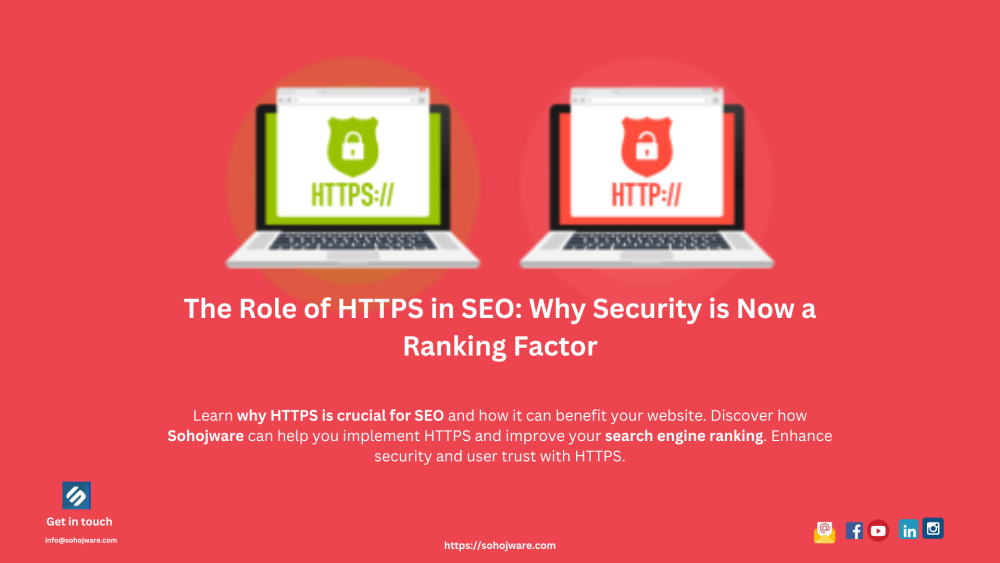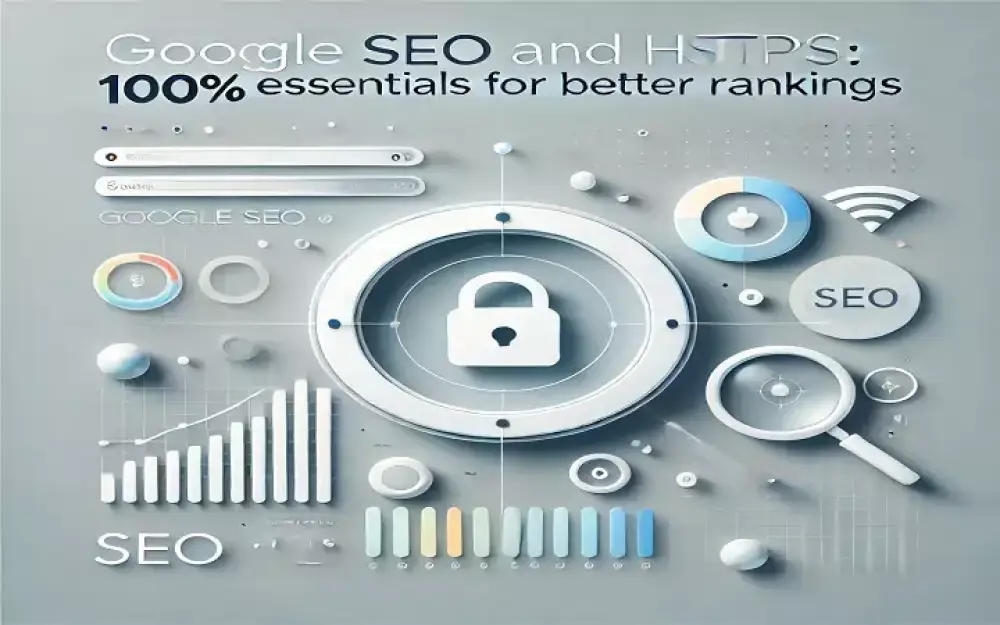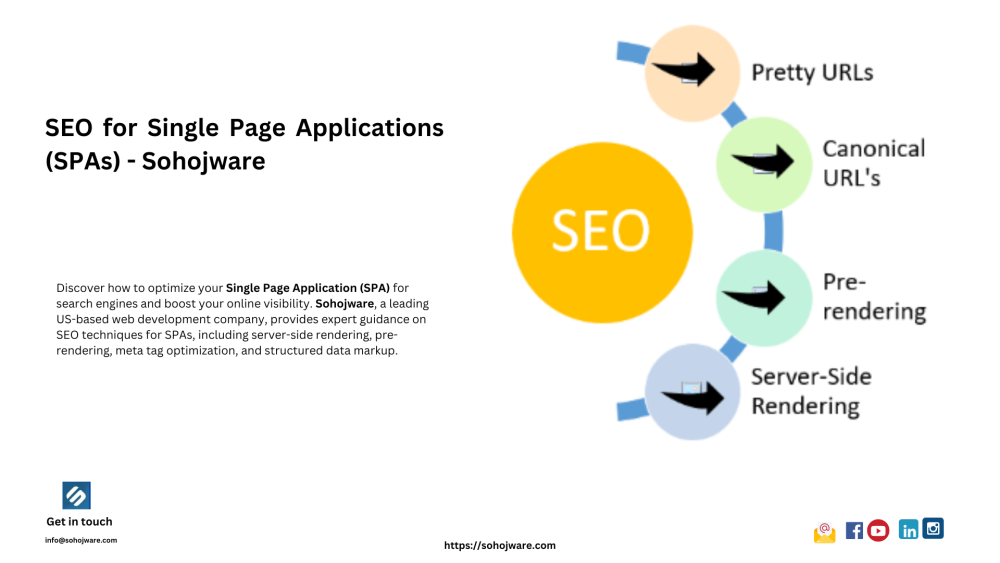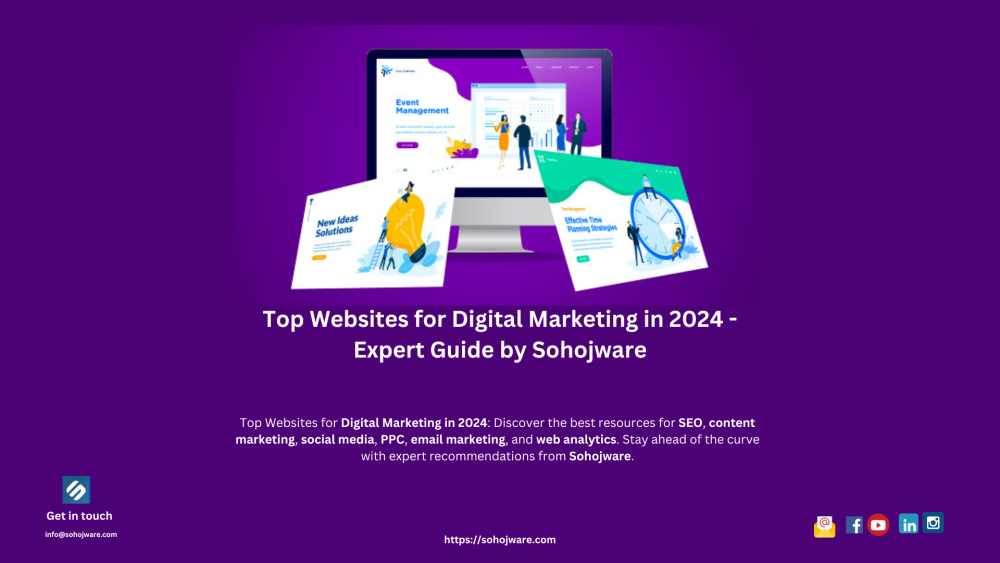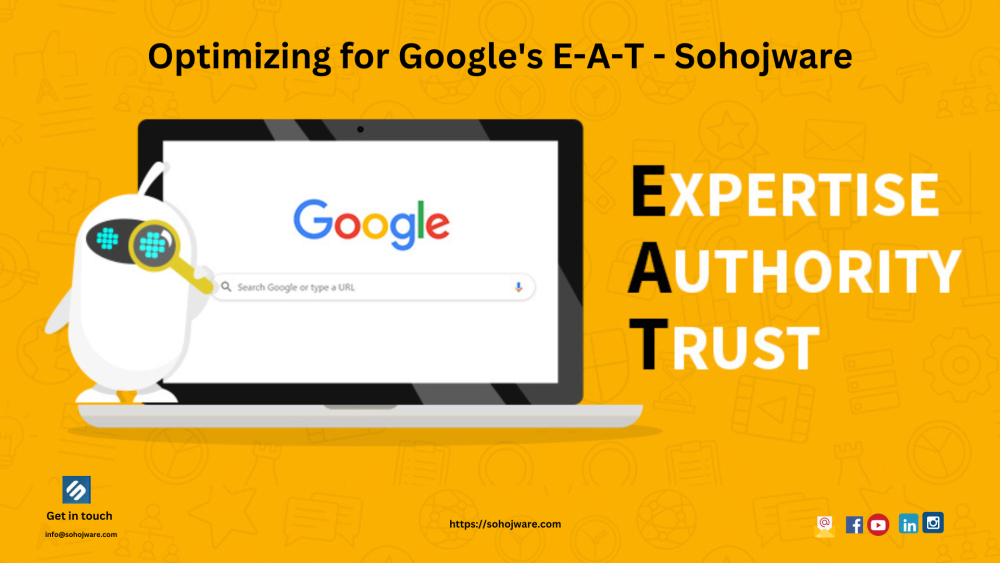In today's digital world, where we entrust websites with our personal information and financial details, security is paramount. This is where HTTPS comes in, playing a crucial role in both user trust and, you guessed it, SEO (Search Engine Optimization).
Sohojware, a leading SEO agency, understands the importance of a secure website for both search engine ranking and user experience. In this comprehensive guide, we'll delve into the world of HTTPS, explaining its impact on SEO and how it can benefit your website.
What is HTTPS?
HTTPS stands for Hypertext Transfer Protocol Secure. It's essentially an upgraded version of the standard HTTP protocol used for communication between web browsers and servers. The key difference lies in encryption. HTTPS encrypts all data exchanged between your website and visitors, creating a secure tunnel that protects sensitive information like login credentials, credit card details, and even search queries. This encryption makes it virtually impossible for third parties to intercept and steal this data.
Why is HTTPS Important for SEO?
While security is the primary reason for using HTTPS, it also plays a significant role in SEO. Here's how:
-
Google Prioritizes Secure Websites: Google has openly declared HTTPS as a ranking factor in its search algorithm. This means websites with HTTPS are more likely to appear higher in search results compared to those without. Aiming for a high SEO ranking? HTTPS is a non-negotiable factor.
-
Enhanced User Trust: Imagine visiting a website with a warning message like "This connection is not secure." It raises immediate red flags and deters users from interacting with the site. HTTPS builds trust by displaying a secure lock icon in the address bar, assuring users that their information is protected. This positive user experience can indirectly improve your SEO ranking.
-
Improved Website Speed: Many modern web browsers prioritize secure connections and can load HTTPS websites faster. This improved website speed is another factor that Google considers when ranking websites.
Benefits of Using HTTPS:
Beyond the SEO advantages, there are numerous benefits for websites using HTTPS:
-
Increased Security: The primary benefit is the enhanced security for both you and your website visitors. HTTPS protects sensitive data from unauthorized access, preventing data breaches and safeguarding user privacy.
-
Builds Brand Reputation: By prioritizing security, you demonstrate your commitment to user safety and build a reputation for being a trustworthy website. This can significantly impact your brand image and user loyalty.
-
Compliance with Regulations: Many industries, especially those dealing with sensitive information, require websites to be HTTPS compliant. Implementing HTTPS ensures your website adheres to these regulations.
How to Implement HTTPS on Your Website:
The process of enabling HTTPS depends on your website hosting provider. Sohojware, as an experienced SEO agency, can help you navigate this process. Generally, you'll need to obtain an SSL (Secure Sockets Layer) certificate from a trusted certificate authority. This certificate verifies your website's identity and enables secure communication.
Common HTTPS Concerns and FAQs:
1. Does HTTPS Affect Website Speed?
While early versions of HTTPS could slightly impact speed, modern web browsers prioritize secure connections and often load HTTPS websites faster. Sohojware's SEO experts can help optimize your website for optimal performance.
2. Is HTTPS Expensive?
The cost of an SSL certificate varies depending on the level of validation required. However, many hosting providers offer free or low-cost SSL certificates with their plans. Sohojware can advise you on the best options based on your website's needs.
3. How Can Sohojware Help with Implementing HTTPS?
Sohojware's SEO specialists can guide you through the entire process of HTTPS implementation. This includes helping you choose the right SSL certificate, configure your website server, and ensure a smooth transition without impacting your SEO ranking.
4. What Happens if I Don't Use HTTPS?
Without HTTPS, your website is vulnerable to data breaches. This can not only compromise your user's information but also damage your brand reputation. Additionally, Google may penalize your website in search results, hindering your SEO efforts.
5. Is HTTPS Necessary for All Websites?
While HTTPS is highly recommended for all websites, it's crucial for those handling sensitive information like login credentials, credit card details, and personal data. If your website collects any user data, implementing HTTPS is not just an SEO best practice but also a security necessity
Conclusion
In today's digital landscape, security is no longer an optional feature; it's essential. HTTPS not only protects your website and users but also plays a vital role in SEO by enhancing user trust and improving your ranking on search engines. Sohojware, as a leading SEO agency in the United States, understands the importance of HTTPS and can help you implement it effectively.
By prioritizing HTTPS, you're not just protecting your website and users but also investing in your website's long-term success. So, don't hesitate to take the necessary steps to secure your website and reap the benefits of HTTPS in terms of both security and SEO.
